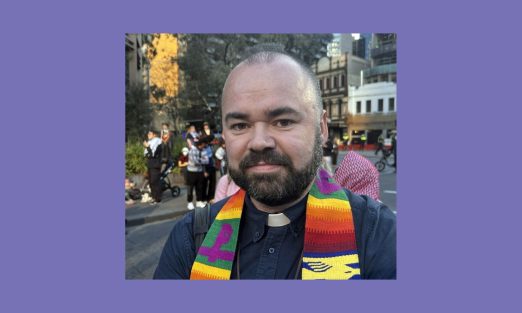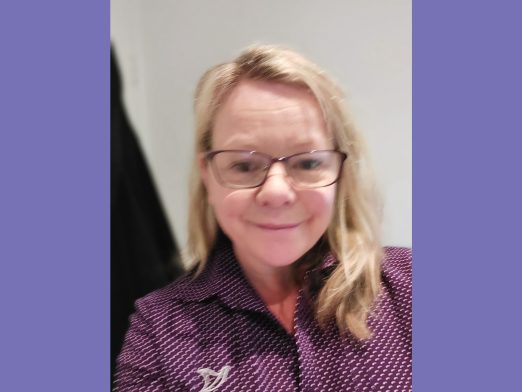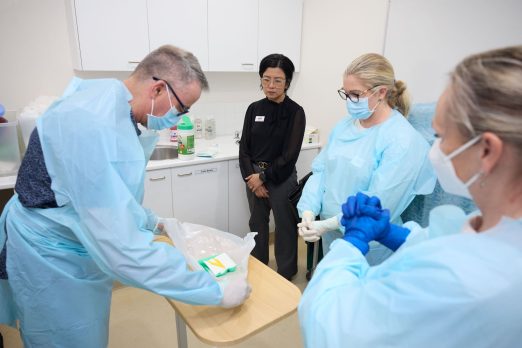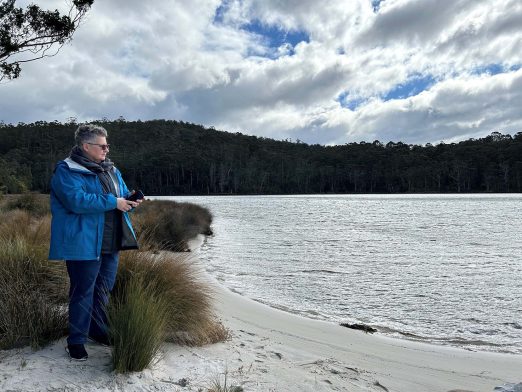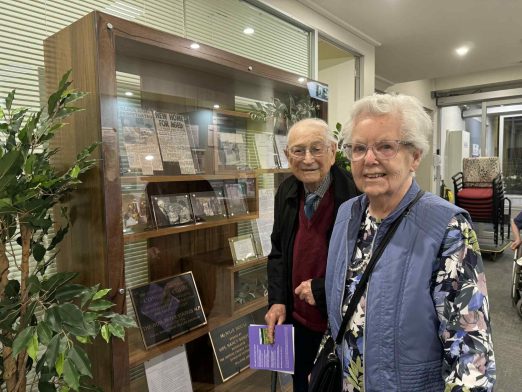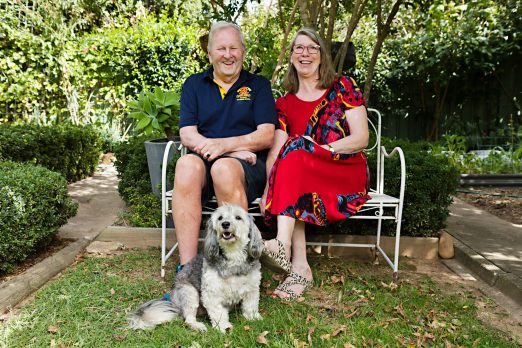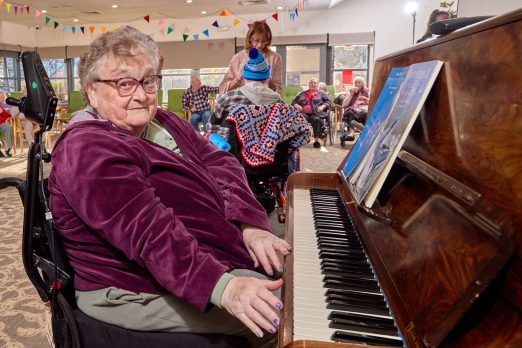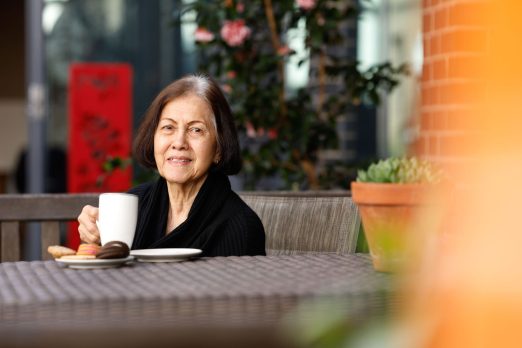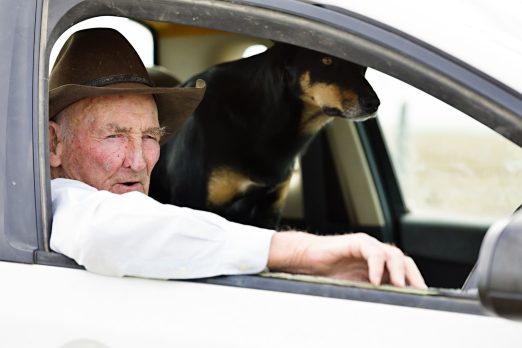News
Badge of courage
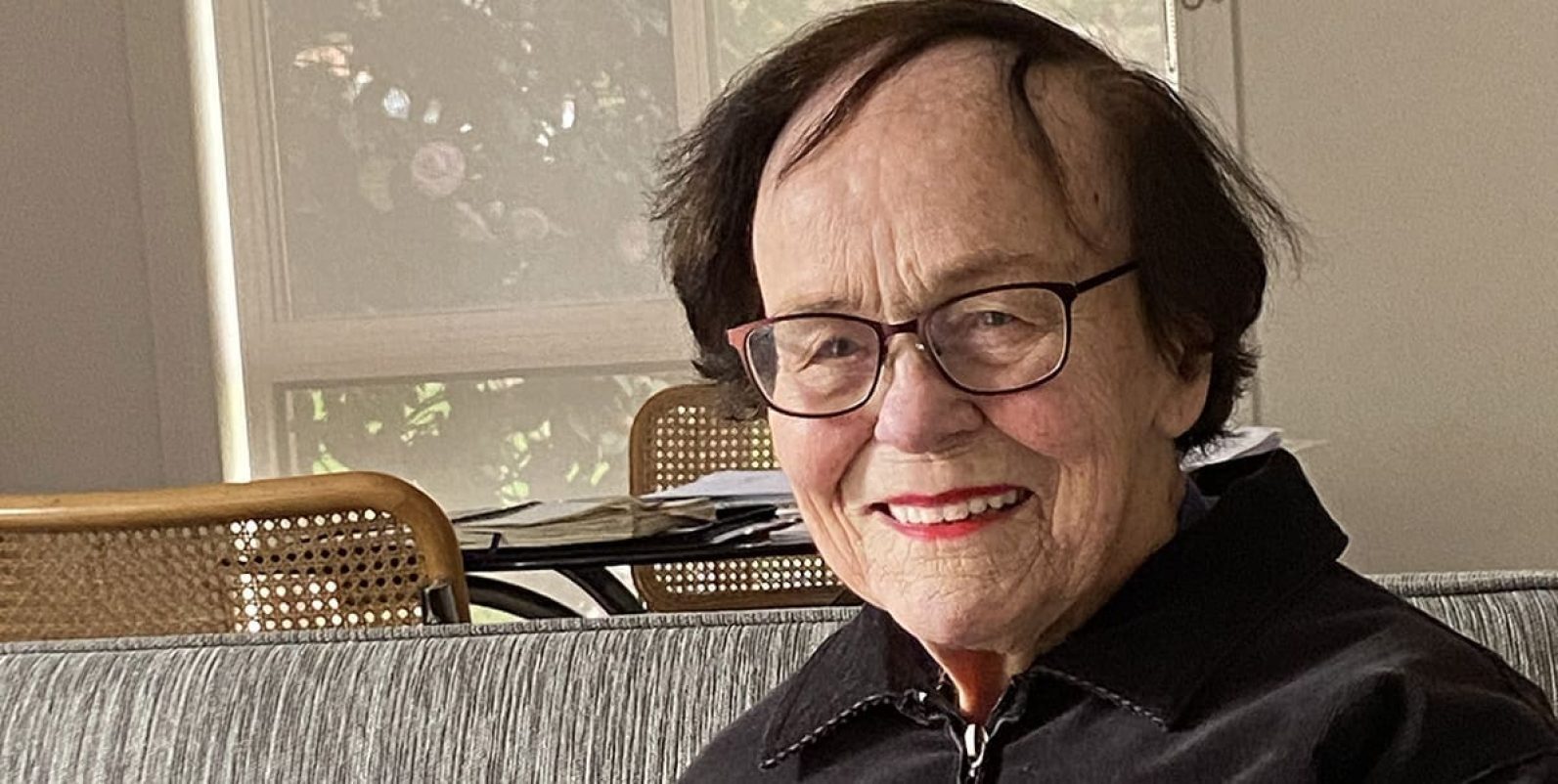
Residential Care
Joan Carboon’s loyalty to Australia is forever. As a teenager she pounded out the dot.dot.dash morse code signals during World War II. Now nearly 80 years later, she’s sorting through her memorabilia to donate items to the Australian Naval Museum.
One of her precious medals that Joan (formerly Neill) will be wearing pinned over her heart for Remembrance Day today is the commemorative badge awarded to her by Queen Elizabeth in 2010. It recognises the vital service of those who worked at Bletchley Park and outposts like the Monterey base in Melbourne during World War II, where Joan was based.
“I played a very small role in the war,” the 97-year-old great grandmother states. “But I know that all our efforts combined to make the Allies’ response what it was. I count it as a real honour to have served my country.”
Today, along with Joan, we pause for a minute’s silence at 11am on the 11th day of the 11th month to commemorate Armstice Day, which marks the end of World War I.
Joan was born sandwiched between the World Wars and raised in Melbourne. “I left school early and went to what was then a business college and learned how to type and do shorthand,” she says. “Of course, the war was all everyone ever spoke about, and I was always determined to join the navy. I hoped my skills would be of some use to them.”
Joan was 18 when she joined the Women’s Royal Australian Navy Service (WRANS) as a signaller, working from the Monterey base in Albert Park. Monterey was a joint operation between the Australian, American and British Naval Forces — dubbed Australia’s version of Bletchley Park.
Joan served during the tail-end of the war – she and the other WRANS worked tirelessly intercepting and decoding messages. “I was working the day that news came through that the war had ended,” Joan says. “It’s hard to describe the feeling of relief. Everyone was overjoyed.”
Joan followed a completely different career path after the war, working in Melbourne’s rag trade for nearly 50 years. Her sparkling wit and fashion sense is as strong as ever and the former Probus Club member spends her days knitting for her large family and tending the flowers at her unit in her Burwood retirement village. She lives independently thanks to a government funded home-care package through Uniting AgeWell.
Joan receives help around the home and also attends Uniting AgeWell’s Social Connections Group at the Chadstone St Marks centre, which she thoroughly enjoys. She was part of the group that recently visited HMAS Cerberus, a Royal Australian Navy base on the Mornington Peninsula that serves as the primary training establishment for naval personnel.
This was the first time that Joan had visited that naval base since the war, and it was an opportunity for her to reflect on her service and to reminisce about those she had worked with. She was so moved, she decided to donate some of her memorabilia to the museum.
One person Joan says she would have loved to have met, was the late Alan Turing, the mastermind behind cracking the German Enigma code. Joan travelled extensively after she retired, and one of her favourite destinations remains Bletchley Park where Turing was based. Its breakthroughs in cracking the code are estimated by historians to have shortened the war by two years.
“I would have loved to have chatted to Alan,” explains Joan. “What an incredible man he was!”
Joan’s legacy lives on – not only through her war memorabilia, but through her family. Joan and her late husband have three children, six grandchildren and two great-grandchildren.
Uniting AgeWell is proud to be able to provide services to war veterans, both in their home and in residential care.
